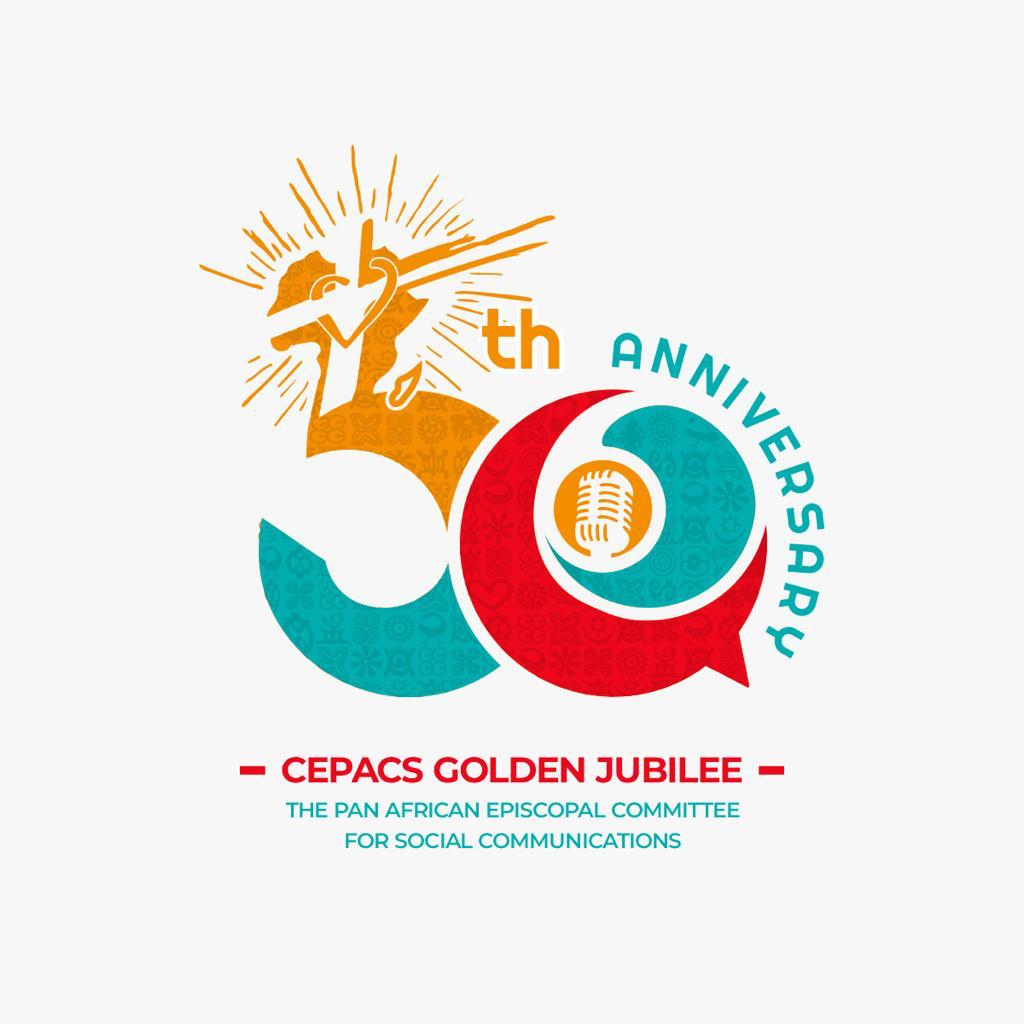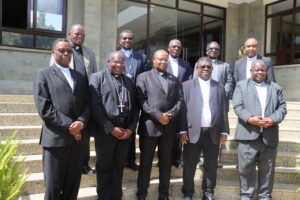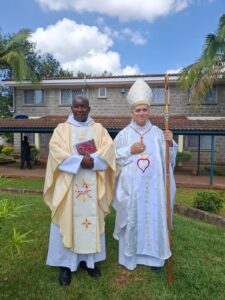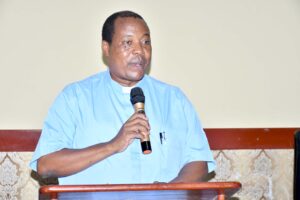SECAM: Achievements of CEPACS Seem to be “Salt in Soup,” Says Prelate as Golden Jubilee Preparations Underway

Sr. Jecinter Antoinette Okoth, FSSA
The President of Pan African Episcopal Committee for Social Communications (CEPACS) has noted that the accomplishments of the bishops’ committee which was established 50 years ago seem to go unnoticed since the committee works behind the scenes.
Sharing with AMECEA Online in an interview Thursday, October 12, as preparations for the celebration of golden jubilee are underway, Bishop Emmanuel Adetoyese Badejo of Oyo Diocese, Nigeria, said that CEPACS has “achieved a lot since it has had its hand in so many things concerning communications in Africa though the successes at times are invisible “like salt in the soup.”
CEPACS was established in 1973 as an initiative of the Symposium of Episcopal Conferences of Africa and Madagascar (SECAM) as a response to Vatican’s document Communio et Progressio (the pastoral instruction on the means of social communication) that was released at the direction of the Second Vatican Council. The document was meant to deepen understanding of the teaching and spirit of the Council and guide Christians in their attitudes to the media after the publication of Intermerifica; a document addressing the concerns and problems of social communication.
According to Bishop Badejo, who is also a member of the Vatican Dicastery for Communication since December 2021, CEPACS aims to animate, encourage, and coordinate media activities of the Catholic Church in Africa in collaboration with regional and national offices as it fulfils its mandate to promote the use of modern means of mass communications as tools of evangelization in the continent. At the same time, the committee ensures that the Church’s communications strategies and initiatives are disseminated across Africa and beyond.
Highlighting some of the achievements of CEPACs over the last 50 years, the Bishop said, “Since its (CEPACS) establishment, we have had developments in the continent in terms of communications as CEPACS works through the regions, Episcopal conferences, and communications offices.”
“It is through the Bishops in CEPACS and Episcopal conferences that establishment of radio stations, televisions, and communication offices in various dioceses, has come about all over Africa,” Bishop Badejo disclosed during the Thursday interview adding that “the awareness of the importance to train priests, religious and the laity in the area of communications and how they can carry out their roles to help the Church proclaim the Gospel on the rooftops is the fruit of CEPACS.”
Additionally, the Nigerian Prelate narrated, the initiative of “Universities and schools to train students in communications can be traced to the work of CEPACS, as well as the linking Africa with the outside world including the dicastery for social communication in the Vatican and looking after organizations that cater for media practitioners and professionals of different media.”
These activities of CEPACS the Bishop said, “have been ongoing over the years and require updating that is why we are having the CEPACS assembly to celebrate these 50 years activities, initiatives, and impacts.”
Asked how he has managed to revive the communications body of CEPACS after the office fell vacant for over ten years due to “conflicting perspectives,” and its activities went down Bishop Badejo revealed that, “It was challenging to revive the interest of the bishops who were already used to working within their own regions and making progress through it was still important to have Africa speak one voice and have one means of making her views known at different levels of the life of the Church.”
“As president of CEPACS even though the office was not fully established, I was able to organize programs for communication professionals who by then were connected under the umbrella of SIGNIS which is the International Association of Catholic Communicators. We therefore managed to work together to organize at least by now three African assemblies of communications professionals,” he said.
Besides, the CEPACS president has managed to maintain linkages with organizations like Radio Vatican so the committee can have some “exposure to the voice of the Church in Africa.”
“We have tried to revive the interest of the bishops and the collaboration agreement with the media organizations in Africa: The Africa Press Organization (APO) which is the media and publicity agency where the director offered his services to help the Church in Africa to broadcast her voice, reflections, and activities to the whole world,” Bishop Badejo narrated and concluded that “Communication professionals are key to promoting the objectives of CEPACS in giving the Church a voice.”


